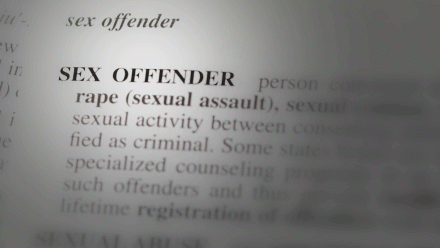Q: A background check was done on a volunteer who wants to serve in children’s ministries at our church. The check revealed that this person is a Level III sex offender, with the last offense occurring 21 years ago. I stated that in no way should this person be allowed to serve in this ministry, but some others are trusting his rehabilitation and say he is unlikely to be a threat to children (his victims were all adult women). What recommendation do you have?
Before I answer your question, I want to applaud you for using a criminal background check in screening your volunteer workers. Many churches still do not take this measure when recruiting volunteers, which greatly increases the possibility that dangerous individuals will end up working in various ministries.
Understand the risks
In answer to your question, in most states Level III sex offenders are considered the most likely to recommit a sex crime. In light of the state making this assessment of the individual, the church will likely be held liable if his next victim is associated with your church.
Leave room for grace
I also do not doubt that Christ can transform individuals into new persons and totally heal them from their past sins. At the same time, that transforming nature of Christ will generate external evidence of the new nature in the individual. Church leaders must rely on the leadership of the Holy Spirit in making this decision. But they also must do their homework.
Create a plan of action
The church leadership needs to create a plan of action for evaluating this individual. They must gather all the relevant facts about the past crimes and measure the risk of future harm.
The church should not rely on the word of the former sex offender concerning his crimes.
The church should measure the truthfulness of the former offender against the facts that the church gathers from sources related to his crimes. For example, the church should go to the court and review the files related to his prior crimes. The church should also go to the police department and review copies of the police reports of his prior crimes.
Connect with probation officer
If possible, the church should also receive permission to discuss the individual with his probation officer. The church may also want to discuss this individual’s situation with his family members and close friends. The pastors conducting the due diligence should form an opinion about the character of the individual.
Seek and expect the truth
If the sex offender has been truthful about his crimes, then the church may consider the mitigating circumstance (time since the last offense and age of his victims) related to the types of sexual offenses he committed. If he has not been truthful, then he should be rejected as a volunteer in any capacity.
Ongoing due diligence
The reviewing of the individual’s past and present does not end the due diligence. The church’s favorable evaluation of the evidence must also be weighed against the risk of harm to innocent members.
The church should review its due diligence materials with its attorney and insurance company. If the due diligence and professional advice demonstrate he is unlikely to pose a risk to other members, the church may allow him to volunteer with very close supervision. However, if any hint of his former nature arises through this process or the professionals are unwilling to support his request to volunteer, the church should not allow him to volunteer in any capacity.
Consider a Christian psychologist
To provide additional assurance that our innocent members will not be harmed, the church should also receive professional advice regarding the individual.
Frequently, the church will direct the former sex offender to a Christian psychologist for evaluation. If the Christian psychologist renders a written report stating that he is unlikely to recommit sex crimes in the future, then the church may have a basis for allowing the individual to volunteer in limited capacities.





